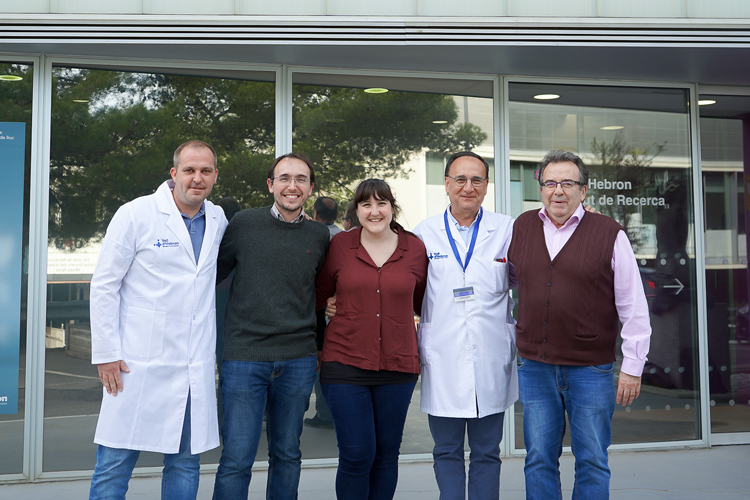A collaborative project led by the Pharmaceutical Chemistry Group (GQF) at the IQS School of Engineering and the Translational Molecular Pathology Group at the Vall d’Hebron Research Institute (VHIR) has studied an inhibitor of a pathway related to chemotherapy and immunotherapy resistance.

Survival after a cancer diagnosis has increased in recent years. However, the prognosis remains severe in cases that are detected in an advanced phase with metastases or cases in which there is resistance to usual therapies. Within this context, a collaborative project led by the Pharmaceutical Chemistry Group (GQF) at the IQS School of Engineering and the Translational Molecular Pathology Group at the Vall d'Hebron Research Institute (VHIR) has studied an inhibitor of a pathway related to chemotherapy and immunotherapy resistance. Blocking these tumour malignancy mechanisms would increase the effectiveness of current chemotherapy or immunotherapy treatments. Their work, published in the Journal of Medicinal Chemistry, is in the preclinical development phase and has been carried out in collaboration with the Biomedical Research Group in Urology at the VHIR and the CIBERONC cancer research group.
Previous studies led by Dr Santiago Ramon y Cajal, head of the Translational Molecular Pathology Group at the VHIR, head of the Pathological Anatomy Service at the Vall d'Hebron University Hospital, and head of the CIBERONC Group, had identified the MNK1 protein as a possible therapeutic target for cancer treatment. MNK1 is responsible for activating the eIF4E factor, which is considered to have a poor prognosis for many types of tumours because it allows tumour cells to survive treatments and is thus related to resistance to conventional therapies.
This project, initiated through Dr Elisabeth Bou's doctoral thesis, studied a drug (known as EB1) that blocks MNK1 and, consequently, the activation of the eIF4E factor. “Inhibition of this pathway does not have an anti-tumour effect per se, but if it is administered jointly with chemotherapy or immunotherapy we can prevent tumour cells from surviving and improve the results we obtain with these treatments,” explains Dr Stefan Hümmer, a researcher in the Translational Molecular Pathology Group with VHIR and CIBERONC. It is also worth noting that the pathway activated by MNK1 does not have essential functions for healthy cells. Therefore, eliminating it would not produce other undesirable side effects.
This is not the first time drugs have been tested against this cellular pathway. However, the EB1 drug has a novel mechanism of action that would decrease the side effects produced by other types of MNK1 inhibitors. Generally, inhibitors of this protein bind at the same site as ATP, a molecule that is necessary to carry out the primary activation function of eIF4E. “The usual inhibitors prevent the primary function of MNK1, but may produce the undesired activation of secondary functions. In contrast, in this study carried out on cells, we found that EB1 inactivates MNK1 completely, thus preventing unwanted effects from arising," states Dr José I. Borrell, director of the Pharmaceutical Chemistry Group (GQF) at the IQS School of Engineering. Moreover, the drug EB1 has the ability to inhibit the growth of tumour cells on its own, while other existing inhibitors do not offer this possibility.
Above all, the researchers on the project emphasize the low toxicity of the drug, which would not have side effects on healthy cells. In addition, sensitizing tumour cells to standard treatments would reduce the chemotherapy doses, thus reducing the side effects of primary therapy as well.
With the aim of reaching clinical practice, the researchers are currently studying which combinations with existing treatments, both chemotherapy and immunotherapy, provide greater benefits for patients. In the case of immunotherapy, EB1 could prevent tumour cells from escaping immune system recognition, one of the reasons why these strategic treatment strategies may not have good results. "We are beginning to study its effectiveness in breast and prostate cancer, but we think it is possible to apply it to any type of tumour because the mechanisms of resistance to most treatments are similar," concludes Dr Santiago Ramon y Cajal.










